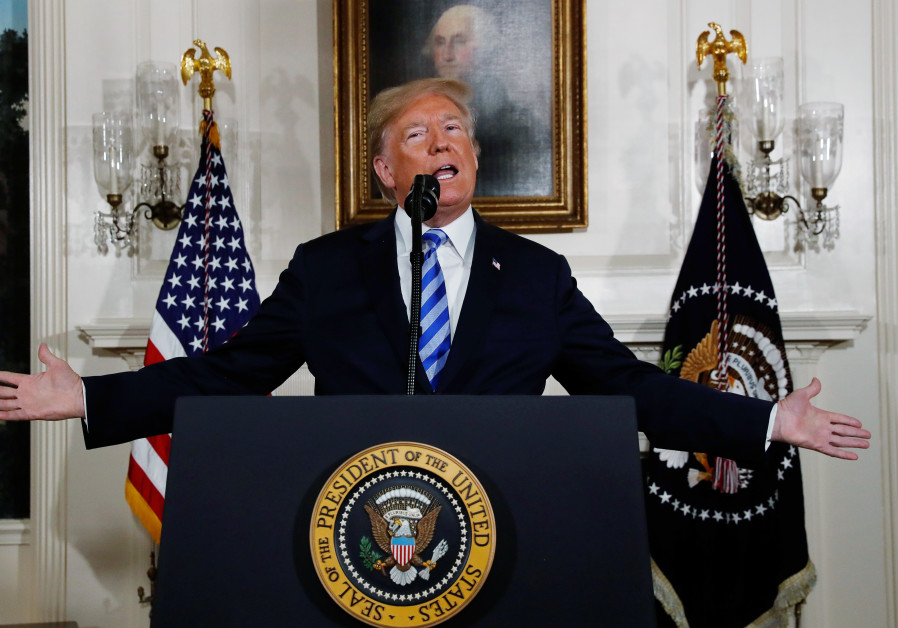With Khashoggi crisis, Trump faces another obstacle to his peace plan

US President Donald Trump announces his intention to withdraw from the JCPOA Iran nuclear agreement during a statement in the Diplomatic Room at the White House in Washington, US, May 8, 2018. (photo credit: REUTERS/JONATHAN ERNST)
WASHINGTON – As the Trump administration deliberates when to release its long-awaited Middle East peace plan, the murder and alleged dismemberment of Jamal Khashoggi, an American resident and Saudi journalist, has become yet another political dynamic likely to factor into the timeline of the launch.
Khashoggi’s death at the hands of Saudi Arabian officials has rattled Washington’s alliance with Riyadh, forcing lawmakers long deferential to and apologetic of the monarchy to question their fundamental understanding of the relationship. Republicans and Democrats alike have warned that all options should be on the table as they reassess US aid and defense contracts with the kingdom, and they have compelled US President Donald Trump to warn of “severe” consequences if it is found that Saudi Arabia’s crown prince, Mohammad bin Salman, was complicit in the killing.
That puts the president’s Middle East peace team in a bind. Officials on that team say their plan for Israeli-Palestinian peace does not rely on Saudi Arabia – and, to the extent that it does, that they see the kingdom’s governing structure as wider than the lone crown prince, heir to the throne but internally opposed in a fractious power struggle. And yet the entirety of the US-Saudi relationship is currently under scrutiny, beyond questions specific to Mohammad bin Salman’s leadership qualities. The administration’s ability to earn buy-in from the Saudis for their peace plan will be contingent on their response to the Khashoggi crisis.
It has always been a part of their strategic plan to gain support, acceptance or acquiescence from the Arab world – led by Saudi Arabia – in their effort to pressure the Palestinians back into negotiations with Israel. While Jared Kushner, the president’s son-in-law leading the effort, has limited his policy involvement in the Middle East to Israeli-Palestinian peace, it was this issue that brought him in such close and frequent contact with the Saudi crown prince – a relationship now at the core of America’s response to the murder.
If the administration, by will or pressure, takes punitive actions against the kingdom – and if it declines to accept the Saudi government’s explanation of events, claiming Khashoggi’s murder was a rogue operation – then it is hard to imagine a Saudi-led Gulf alliance under domestic pressures agreeing to an American peace plan widely expected to be unforgiving to the Palestinian cause.
And that is yet another example of how chaotic events in the Middle East tend to disrupt best-laid plans.
“You can’t put something out where everybody says, ‘Ah, this is dead on arrival,’” one senior administration official told the Post over the summer. “You can’t do that. And the same exact document that may be dead on arrival on a Monday might not be dead on arrival on a Thursday. That sounds kind of counterintuitive, but that’s the way this works.”
Join Jerusalem Post Premium Plus now for just $5 and upgrade your experience with an ads-free website and exclusive content. Click here>>






Comments are closed.